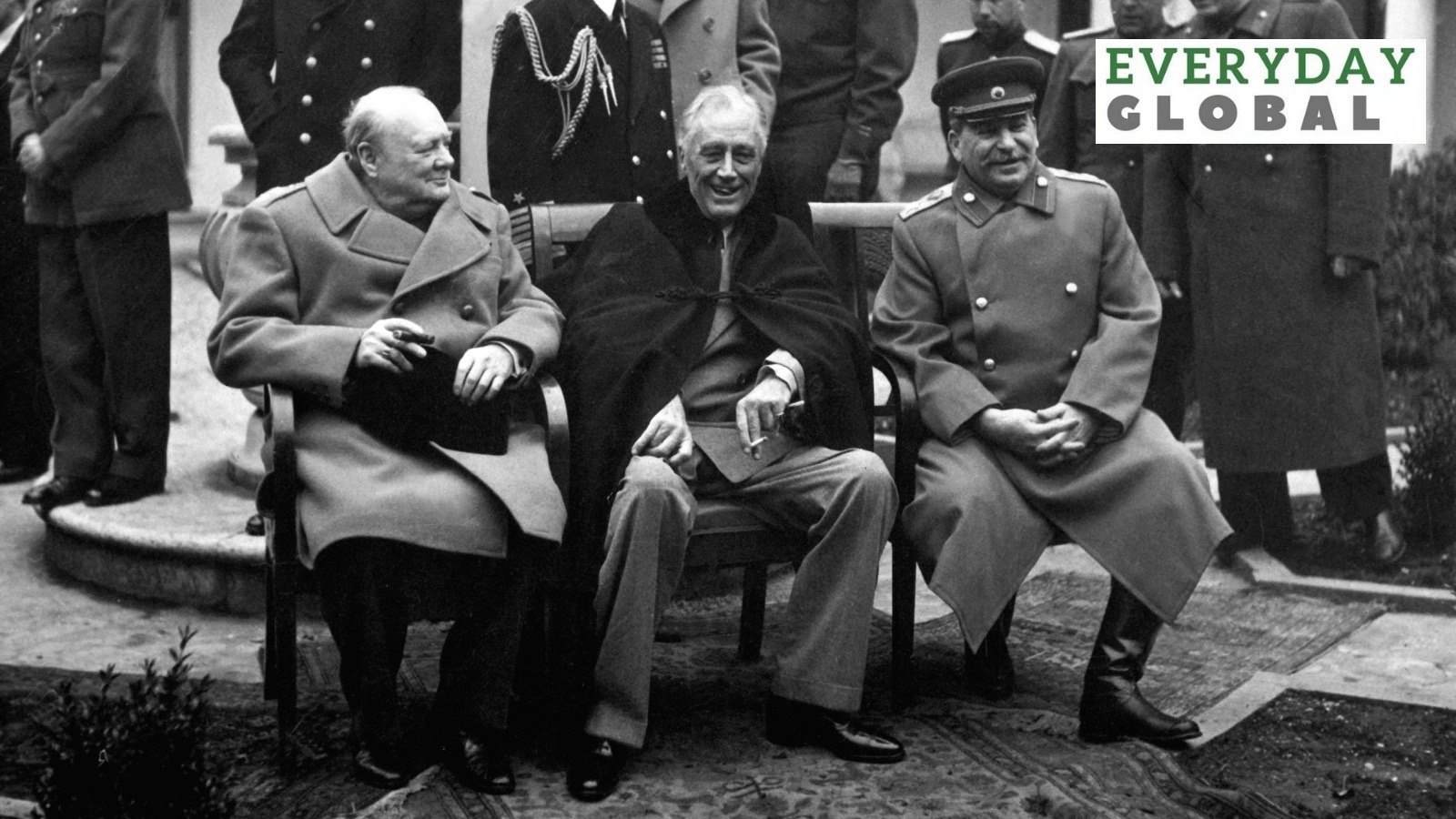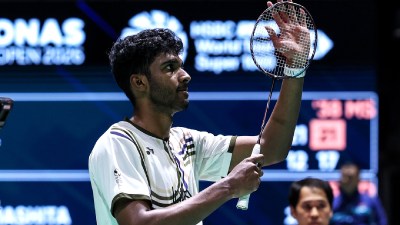With 153 nations voting in the resolution’s favour, 10 voting against it and 23 abstaining, the small number of countries rejecting the vote came under focus. The United States of America’s continued support for Israel has also been noted across other votes at the UN. It vetoed a resolution of the UN Security Council – a principal organ of the UN – that called for a ceasefire the previous week.

Why are veto powers given to specific countries within the UN, and why has that power been retained for more than 70 years? We explain.
What is the veto power in the UNSC?
All member countries of the UN are part of the General Assembly. This body can pass resolutions on relevant matters. Only a simple majority (of more than half the members) is required to pass its resolutions.
However, the UN Security Council is a much more exclusive club, consisting of the United States, the United Kingdom, France, Russia and China. These are the ‘permanent five’ or P5 countries, called so because the UNSC also has 10 additional members who are elected for two years each based on UNGA elections. Also, UNSC resolutions are legally binding, unlike the UNGA’s.
Each of the P5 members has the power to veto a vote. It was agreed by the drafters of the UN Charter (which lays down its governing principles) that if any one of the five permanent members cast a negative vote in the 15-member UNSC, the resolution would fail. A member can choose to abstain though, allowing the resolution to be adopted if it obtains the minimum nine votes.
Why do only permanent members of the Security Council have veto power?
The UN says, “The creators of the United Nations Charter conceived that five countries… because of their key roles in the establishment of the United Nations, would continue to play important roles in the maintenance of international peace and security.”
Story continues below this ad
After World War Two ended in 1945, the P5 were among the victors against Germany, Italy and Japan. Among them, the US, the UK and the USSR (later Russia would take its seat) were at the forefront of war efforts. When it came to forming an international organisation to maintain international peace, they were keen to accord certain exclusive rights to themselves.
Author and journalist David Bosco wrote in a 2014 article, ‘Assessing the UN Security Council: A Concert Perspective’, about how this process came to be.
“The dominant Allied powers, the United States, the Soviet Union, and the United Kingdom secured permanent seats for themselves. They in turn offered seats to France and China in the expectation that these countries would assume, or reassume, great-power status,” he wrote.
It is believed that American President Franklin D Roosevelt was convinced that despite the civil war going on in China, between the Communist Party and the Nationalist Party, the Communists would be defeated and the country would be an ally against the USSR.
Four policemen, American intelligence gathering, and more
Story continues below this ad
Several meetings and conventions were held on the road to the UN’s formation. The Dumbarton Oaks conference was held in Washington DC in 1944. It was attended by representatives of China, Great Britain, the USSR and the US. Barring China, leaders of the other three countries also later met in Yalta, in the Crimean peninsula, to draw the contours of a UN-like body.
In the 1994 article ‘FDR’s Five Policemen: Creating the United Nations’, international affairs scholar Stephen Schlesinger noted how FDR saw the UN as essential in a post-war world. The article title derives from ‘Four policemen’, a term FDR often invoked in the early 1940s, to claim that these countries would have to play an active role in global peacekeeping, given their relative strength.
Citing secret US files that were then recently released, Schlesinger wrote that Pentagon operatives spied on American allies before the 1945 San Francisco conference that would see the founding of the UN.
“Using its intelligence data, the United States was able to develop its arguments on behalf of the veto well in advance and thus disable the opposition,” Schlesinger wrote. He added that Washington argued in terms of practicality, saying there simply was not going to be a viable UN unless the four or five most powerful nations received veto rights. Unless these countries saw some kind of power that only they held, they would not be willing to participate in such a body.
Story continues below this ad
The documents further suggest that “in shaping a United Nations that we wanted, we were indulging not only in altruism but also in national self-interest,” he wrote.
Countries such as Chile, Costa Rica, Cuba, Italy, and Switzerland later raised concerns about an exclusive veto power.
“Turkish officials also expressed doubts about the voting procedures. They told French diplomats in Ankara that the setup ‘seemed destined to make lawful the projects of the large powers against the small – with the system of voting in the Security Council ensuring them impunity.’ The Turks warned that ‘the small states are inevitably going to be reduced to the status of satellites of the great’”, Schlesinger wrote.
The US continued to argue for it, adding that other UN members “would never have enough weapons or influence to enforce UN edicts on the great powers except by the concurrence of the great powers themselves,” he wrote. Through a mix of lobbying, intelligence gathering and other kinds of manoeuvring, “America consequently used every weapon in its arsenal to achieve what it sought,” wrote Schlesinger.
Story continues below this ad
Why has the power to veto in the UN not been amended?
Bosco adds in his article that “permanence and possession of the veto power create a critical status difference with the elected members, even those (e.g., Germany, India, and Japan) who are major powers in their own right.”
India, among other countries, has often made claims to P5 membership, arguing that the current body is limited in terms of representation. However, these efforts have not yielded results mainly because they challenge the dominance of countries that have created and been entrenched in a system that ultimately works in their favour.
While the relative power wielded by the UK and France has declined since the UN was formed, China, the US and Russia still wield great influence. These countries are also engaged in power rivalries and adding new members could be seen as their rivals’ allies or possible threats.
But the reality of a changing world could not be ignored as more and more nations became decolonised. In 1965, the number of non-permanent UNSC members was increased from six to 10.
Story continues below this ad
A 2020 Foreign Policy article criticising the veto power, argued for an alternative – “A reimagined structure for a Security Council would see all 15 seats being made temporary, for periods of five years to provide more continuity, with wide, nonregional open competition for each seat, alongside clear, monitored restrictions on lobbying expenses and two-term limits within a cycle of 30 years to reward excellence while avoiding domination.”








































